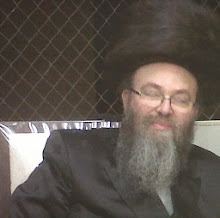For instance, as it is written regarding the verse, “Behold, the kings were assembled, they came on together” (Tehilim 48:5), “No sin in the world is expiated until the kings, to wit, Ze’ir Anpin and Nukva are united… for with the ‘illumination of this union’, all of the Partzufim shine and all sins are expiated” (Zohar I:206b, Vayigash). So it is above, and so it is below. This means that, through the sanctified sexual union, the sins (which are after all, ‘separations’ from G-d) are expiated, subjugating evil and making it incapable to act, as it will be explainned with the help of Heaven.
There is an important secret in this Zohar - which explains the reason for possible attonement through the sexual union - and is called Tikkuna d’Karbana (rectification through an offering): an animal sacrifice to G-d, “[to be] accepted to make atonement for him” (Vayikra 1:4). Moreover, says the Zohar that, “when an offering is brought, ‘everyone receives their provisions’ [i.e., the whole world receives blessings], each one in accordance to his own merit, and then all is united as one… When they, in both worlds [the supernal world, Ze’ir Anpin, and the lower world, Nukva,] ‘were assembled’ [i.e., man and his wife] and were connected [in the sexual act], they ‘came on together’ [also in Aramaic, they ‘passed upon’, in the sense of forgiving as in Micah HaNavi 7:18] – they expiated sins and caused a celestial illumination, so all Partzufim shine and all sins are atoned for” (ibid. Zohar). Now, on another level this means that, “‘If any man of you brings an offering [yakriv] to the L-rd’ – in order for him to come closer to G-d – truly, ‘any man of you’, meaning that he needs to bring an offering of ‘himself’. He needs to sacrifice his ‘personal animal’, which is the desire for evil called the nefesh habahamit” (the Alter Rebbe, Likkutei Torah, Vayikra). That which was offered as a sacrifice on the altar in the Beit HaMikdash was ‘fat and blood’ from the animal. And the corresponding sacrifice for a man who needs ‘to bring an offering of himself’ is a ta’anit (fast), in order to atone for his transgressions – “the fat and blood from his body are ‘burned’, and in this way, they are considered as a pleasing offering to G-d” (Talmud, Berachot 17a; Zohar II:20b, Shemot; Reshit Chochmah [Kitsur], Sha’ar HaKedusha §9; Tanya, Iggeret Hateshuva §2). In a similar manner, during the sexual act (with the kavanah of fulfilling the mitzvah of procreation), the power, body movements, and necessary fluids to ensure the fulfillment of the mitzvah also burn ‘fat and blood’ from the bodies, and are truly an aspect of the offering to G-d. However, this alone is not enough to complete the actual offering; albeit important, this is still makkif (external). It is necessary to act in the manner that ‘he needs to bring his personal animal’, that is, something pnimiut (deeper, from inside), truly rupturing and breaking with the ‘desire for evil’ which is rooted in the nefesh habahamit, to wit, the desire for self-gratification. So the Gemara explains how to attain this level of completeness: the person needs to imagine with all his strenght that, during the mitzvah of uniting with his wife, he is moved ‘externally’ (literally) by a shin-dalet (demon), and not by his own physical appetites (see Talmud, Nedarim 20b). Now the kings can be united above and below y"h.

No comments:
Post a Comment